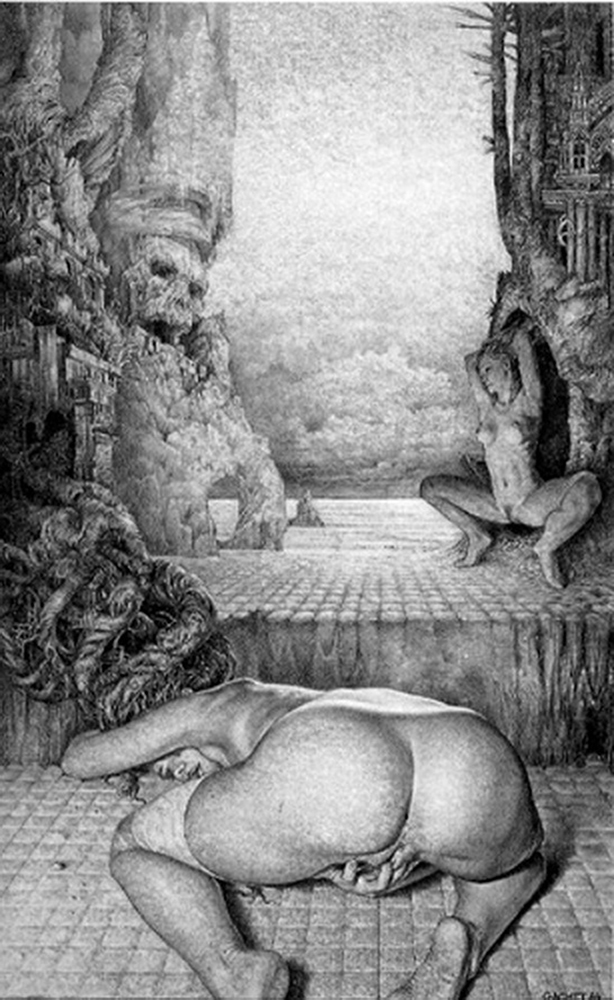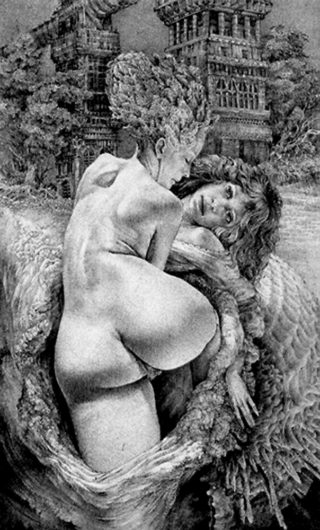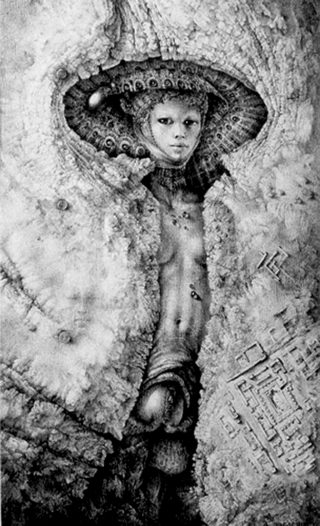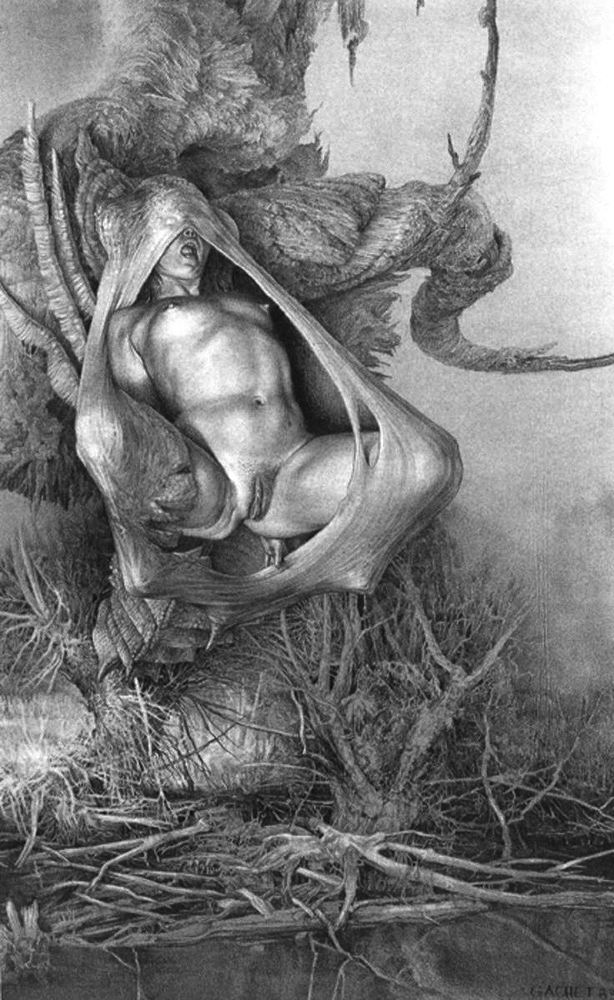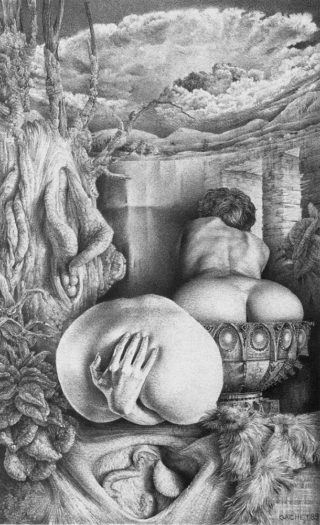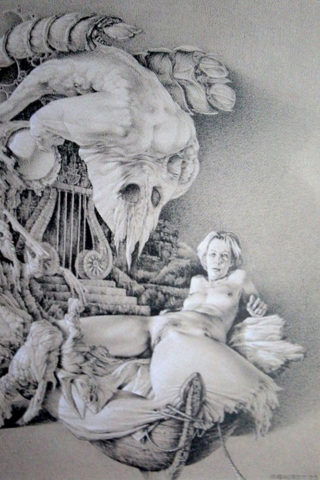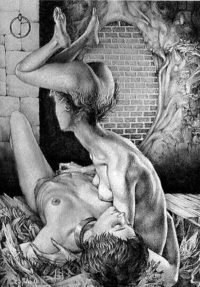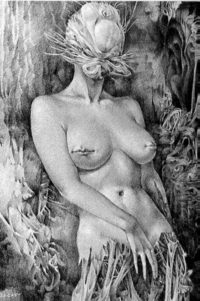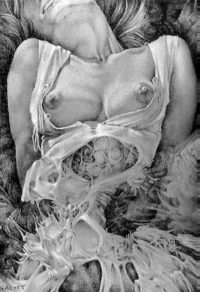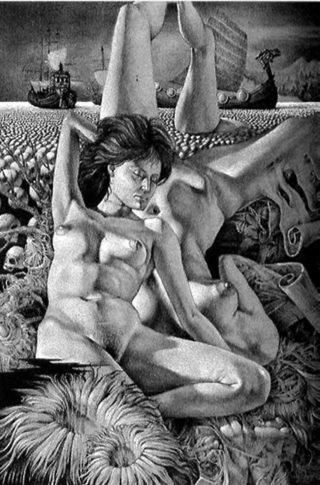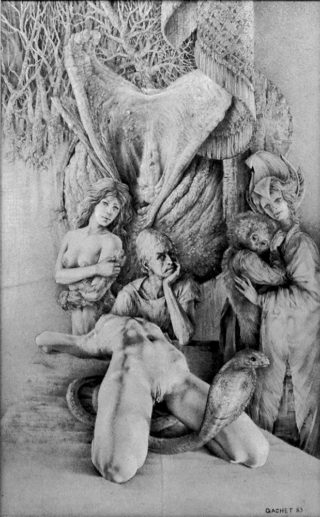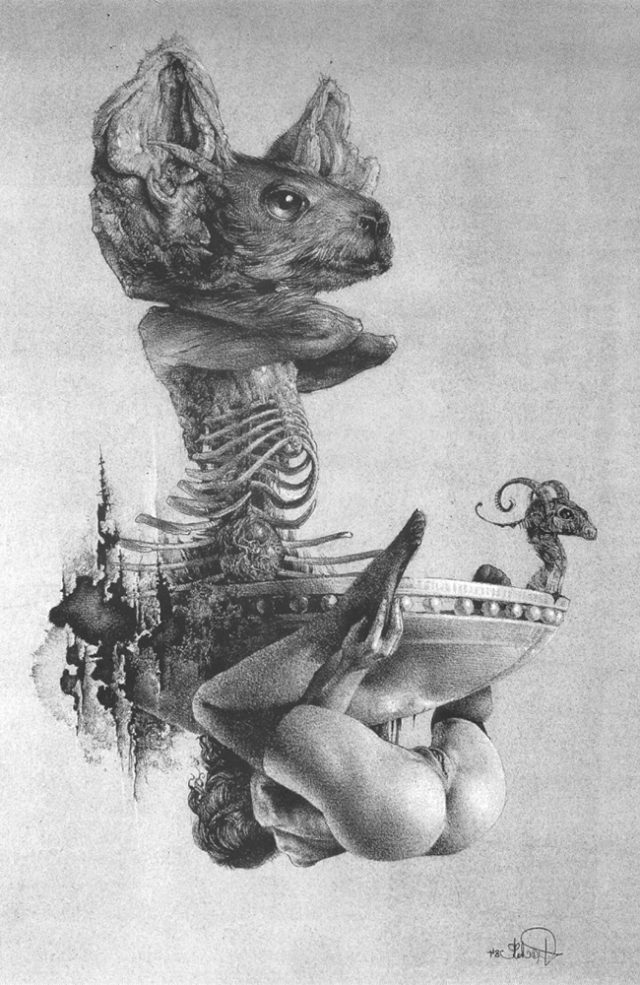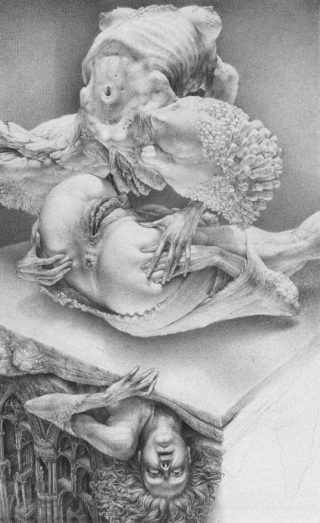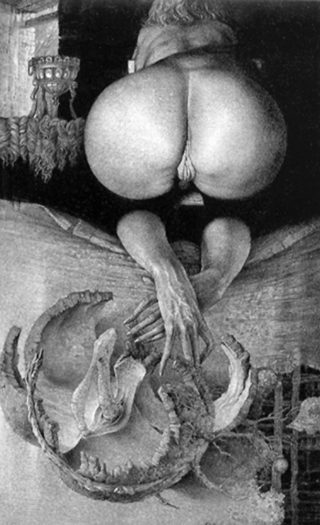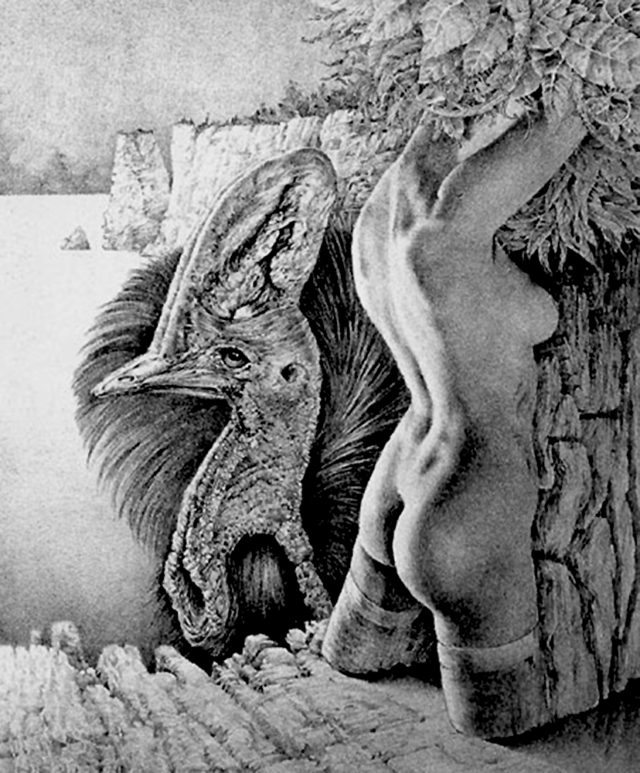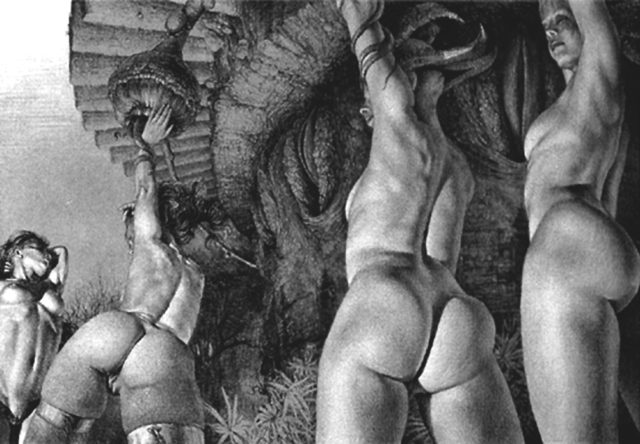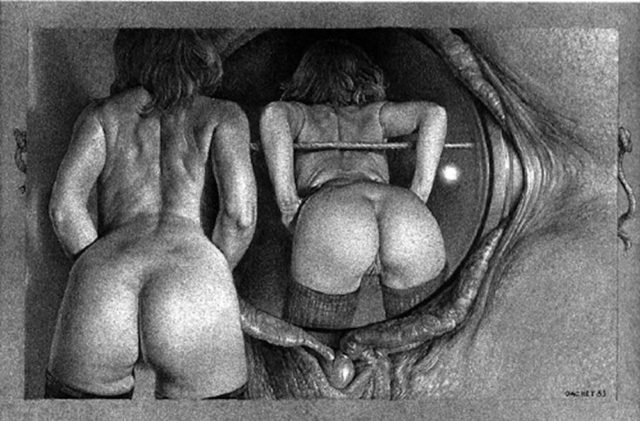 Gérard Gachet was born in Fez (Morocco) in 1935; after a year at the Ecole des Beaux Arts in Paris and two years at the Ecole des Arts Decoratifs in Strasbourg he joined the Centre dramatique de l’Est for three years as a trainee stage designer. He developed a passionate interest in music and song, and wandered back and forth between Paris and Strasbourg. He taught drawing for five years in Metz and Saverne, eventually settling in Strasbourg to concentrate on his own work.
Gérard Gachet was born in Fez (Morocco) in 1935; after a year at the Ecole des Beaux Arts in Paris and two years at the Ecole des Arts Decoratifs in Strasbourg he joined the Centre dramatique de l’Est for three years as a trainee stage designer. He developed a passionate interest in music and song, and wandered back and forth between Paris and Strasbourg. He taught drawing for five years in Metz and Saverne, eventually settling in Strasbourg to concentrate on his own work.
Rejecting the conventional drawing techniques, he works with a ballpoint pen and occasionally two pencils — one a soft black, the other white — or the air-brush. He also produced lithographs and zinc engravings, but his growing interest in half-tones made drawing his favourite medium.
A lifelong insomniac, Gachet did this painstaking preparatory work at night or, more accurately, in the early hours of the morning, when his sensitivity and perceptions were heightened. He often jotted down his ideas instead of making sketches, and then went out fishing before settling down to work. This early-morning contact with nature played a definite part in his work, since it gave him the tactile and visual impressions which were, in the fullest sense, the humus of his art. It was only at a later stage that these impressions found their way onto paper, and the final drawing, however slow and difficult to do, was merely the technical part of the whole operation — bodying forth and “dramatising” on paper a subject which he had already found and visualized.
He is passionately interested in ethology, entomology and mineralogy, and it was his love of nature — including the oddities and incongruities of nature — which he transposed and magnified in his own art. Not surprisingly, there is no cruelty in his work — which is, however, charged with a carnal, animal, natural sensuality. Nature, after all, is not cruel, but violent. And it is this violence which finds expression in Gachet’s drawings, a violence which culminates ineluctably in death — the death which is the nurturing source of all life.
More:

